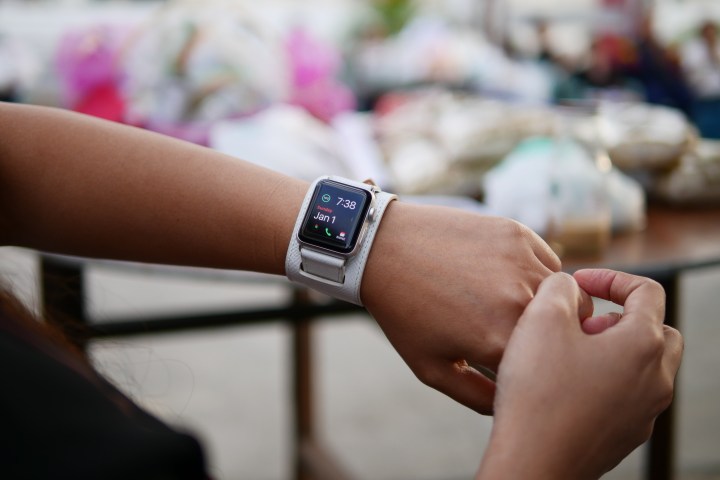
Apparently, the lithium-ion battery packs that power the Apple Watch can sometimes swell and expand when they’re punctured, overcharged, or overheated, or when they sustain other damage. This is, in fact, the same issue that plagued the ill-fated Galaxy Note 7, but thanks to Apple’s careful testing and manufacturing processes, your Apple Watch won’t spontaneously combust — it’ll just become horribly disfigured.
As such, Apple is taking responsibility for this problem, and will process repairs as they relate to swollen batteries beyond the one-year warranty period, up to three years.
While it’s unclear just how many Apple Watch customers are affected by the issue, there are quite a few reports online across various forums like Reddit and Apple’s own support forums. So how can you tell if your battery is swelling? Affected customers say that display displacement or cracking are generally good indicators of an underlying battery problem.
That said, Apple has yet to make any sort of official announcement surrounding the Apple Watch repair extension, which seems to suggest that there aren’t that many people ultimately impacted. But if you are one of the unlucky users whose wearable has been growing larger, feel free to take it over to Apple — you now have up to three years beyond your original purchase date to get that problem taken care of.

